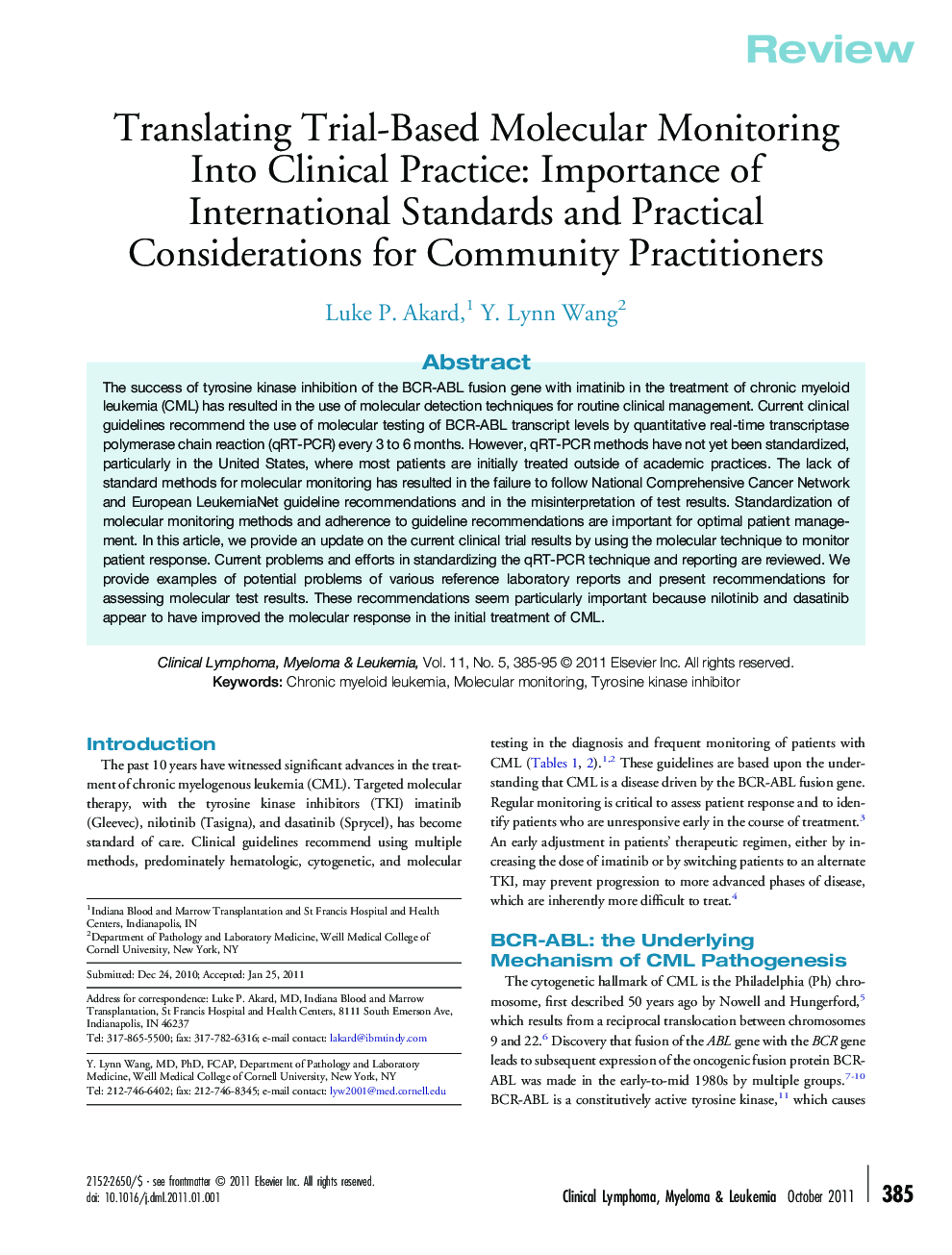| Article ID | Journal | Published Year | Pages | File Type |
|---|---|---|---|---|
| 2755402 | Clinical Lymphoma Myeloma and Leukemia | 2011 | 11 Pages |
The success of tyrosine kinase inhibition of the BCR-ABL fusion gene with imatinib in the treatment of chronic myeloid leukemia (CML) has resulted in the use of molecular detection techniques for routine clinical management. Current clinical guidelines recommend the use of molecular testing of BCR-ABL transcript levels by quantitative real-time transcriptase polymerase chain reaction (qRT-PCR) every 3 to 6 months. However, qRT-PCR methods have not yet been standardized, particularly in the United States, where most patients are initially treated outside of academic practices. The lack of standard methods for molecular monitoring has resulted in the failure to follow National Comprehensive Cancer Network and European LeukemiaNet guideline recommendations and in the misinterpretation of test results. Standardization of molecular monitoring methods and adherence to guideline recommendations are important for optimal patient management. In this article, we provide an update on the current clinical trial results by using the molecular technique to monitor patient response. Current problems and efforts in standardizing the qRT-PCR technique and reporting are reviewed. We provide examples of potential problems of various reference laboratory reports and present recommendations for assessing molecular test results. These recommendations seem particularly important because nilotinib and dasatinib appear to have improved the molecular response in the initial treatment of CML.
